At CarnivoreWeb.com, we independently review products and outfitters. However, we may earn a commission when you purchase products through links on our site. Read our affiliate policy. Read about how we test products.
Back to California’s Roots With Hunter, Forager, and Chef Jason Tuley.
The state of California has become so closely associated with its high-flying, huge metropolitan areas of San Francisco and Los Angeles that you could be forgiven for forgetting about the remainder of the third-largest state in America. California encompasses almost 164,000 square miles, including a large amount of rural and agricultural areas. With its coastal areas, forests, mountains, deserts, lakes, and rivers, California boasts diverse and rich ecologies that are home to an array of plants, animals, and marine life.
We visited Jason Tuley at his ranch in Santa Ynez, California, and it felt like we were in the heartland of America. When we walked up, he was standing in his outdoor kitchen sharpening his knives, his Big Green Egg and Chicago Brick Oven wood-fired oven warming up behind him. Rebel, a blue heeler, and Porcini, a pug, circled the patio. Jason and his wife, Willow, had already been up for hours, baking homemade bread and preparing for the meal to come.
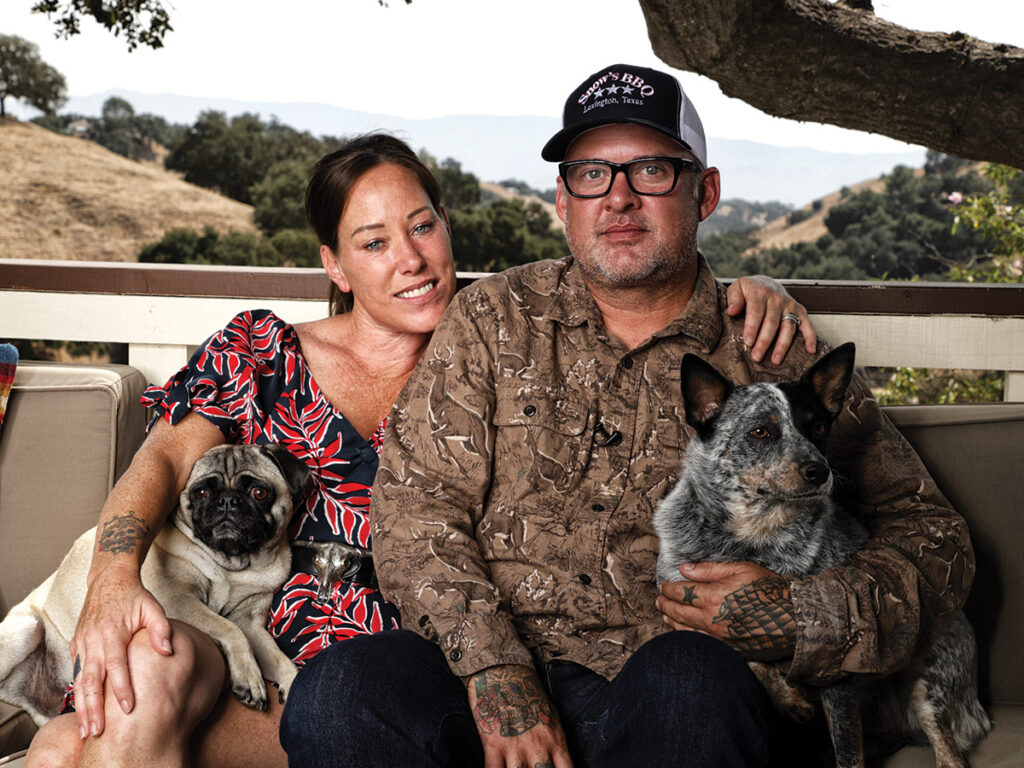
Jason grilled three types of game sausages, smoked wild turkey boudin, hunter’s loop venison, and spicy wild boar linguica, serving it with homemade bread, homemade mustard, and garden pickles. He then prepared oak-grilled blacktail deer filets from an animal he shot just four days prior. He combined it with chanterelle mushrooms, seared foie gras, and red wine jus. Dessert was his version of a childhood favorite, s’mores, elevated to perfection with chocolate, marshmallow, chicory cream, and graham crackers. All the dishes looked deceptively simple and were amazingly fresh and flavorful, heavenly examples of the field-to-table mantra.
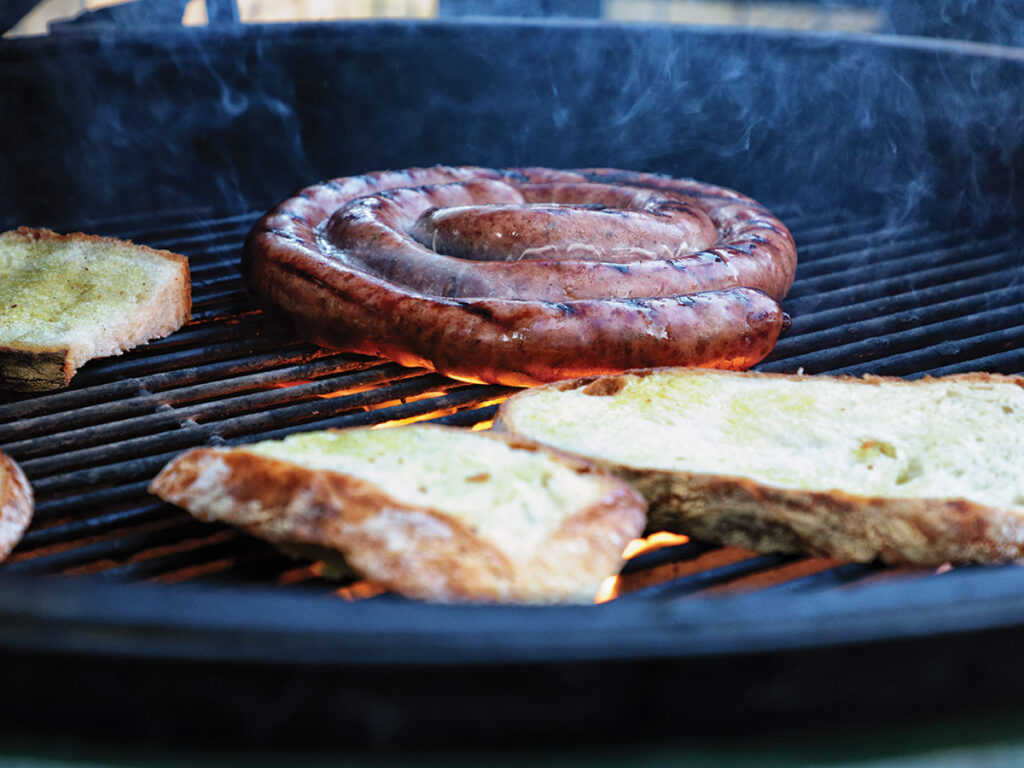
With colorful tattoos peeking out from beneath his shirt, Jason glided effortlessly around the kitchen, exuding the easy confidence and serenity of someone who’s hit his stride in life, of a man who’s doing what he knows in his heart that he should be doing.
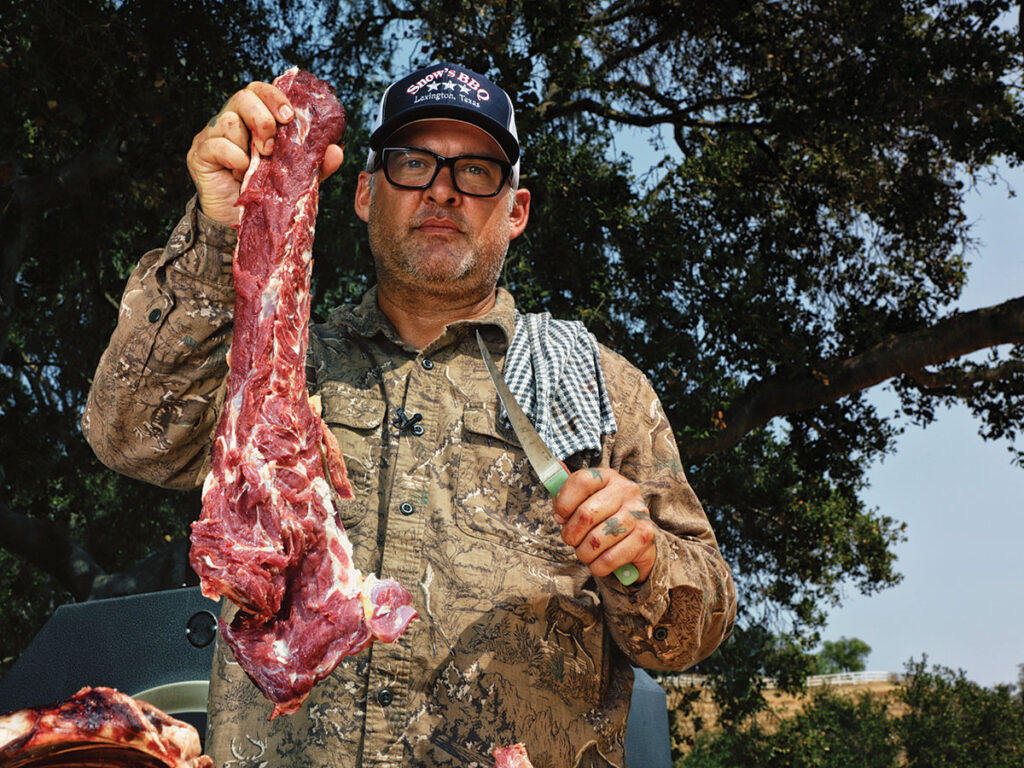
Ranch Life
Jason was born in 1974 in San Luis Obispo, on the central coast of California and approximately halfway between San Francisco and Los Angeles. His father was a cattle rancher, with ranches in the central and northern parts of the state. Jason lived the typical ranch life, along with his older brother — as a kid, his job was to kill squirrels, but as he got older, that gave way to tough ranch jobs like laying fence and working the harvester. He greatly enjoyed the former; the latter, much less so.
Meanwhile, Jason’s grandmother had a restaurant, Mom’s Drive-In, located not too far away in King City. Hailing from Georgia, she served down-home Southern-style country cooking — biscuits, gravy, lard. Jason would stay with her for several weeks at a time during the summer, learning how to bake and planting the seeds of his future livelihood.
By the time Jason was in high school, he had an inkling of his passion for cooking but still wasn’t quite sure what career path to follow. At first, he had no aspirations to be a chef; it wasn’t cool back then like it is now. Still, he got a job working at the Brophy Bros restaurant in Santa Barbara, spending one summer as a bus boy before he managed to move into the kitchen. The chef ran his kitchen like the captain of a ship, with a kitchen full of surly dudes. Jason was a hard worker and was rewarded with a sous chef role at a very young age, working as a pantry chef preparing salads.
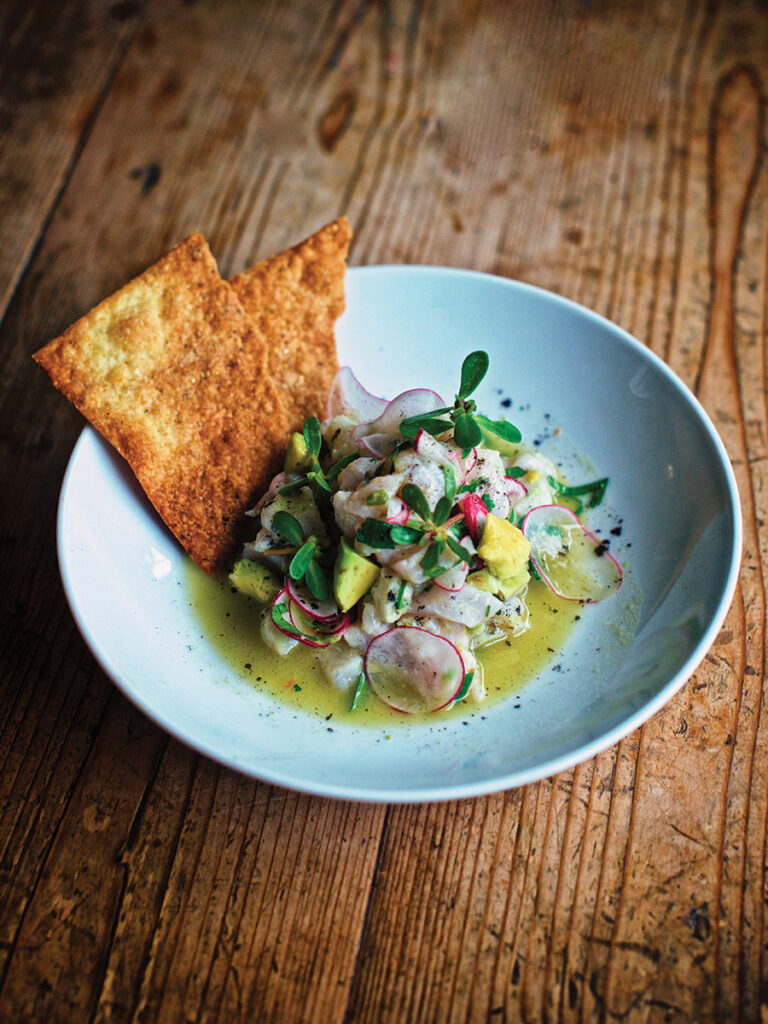
His interest in cooking solidified, Jason got serious about it by enrolling in the culinary program at Cabrillo College in Santa Cruz. He pushed through their associates program as quickly as he could, then went to the esteemed — and expensive — Culinary Institute of America at Greystone in Napa.
Jason had to pay his own way through school, so he worked in restaurants at least 40 hours every week while taking classes. He started in the pantry at Clouds restaurant in Santa Cruz, then ended up as its chef when he finished CIA, at the tender age of 22. Jason reflected, “I did well, but in hindsight, it was too much responsibility for such a young chef. I was much too young to be the chef of the restaurant. I learned a lot by being a sous chef in other restaurants.”
Indeed he did in the years to follow, serving in various sous chef and executive chef roles with restaurants, hotels, and private clubs up and down the California coast, from San Francisco to Santa Barbara to Los Angeles.
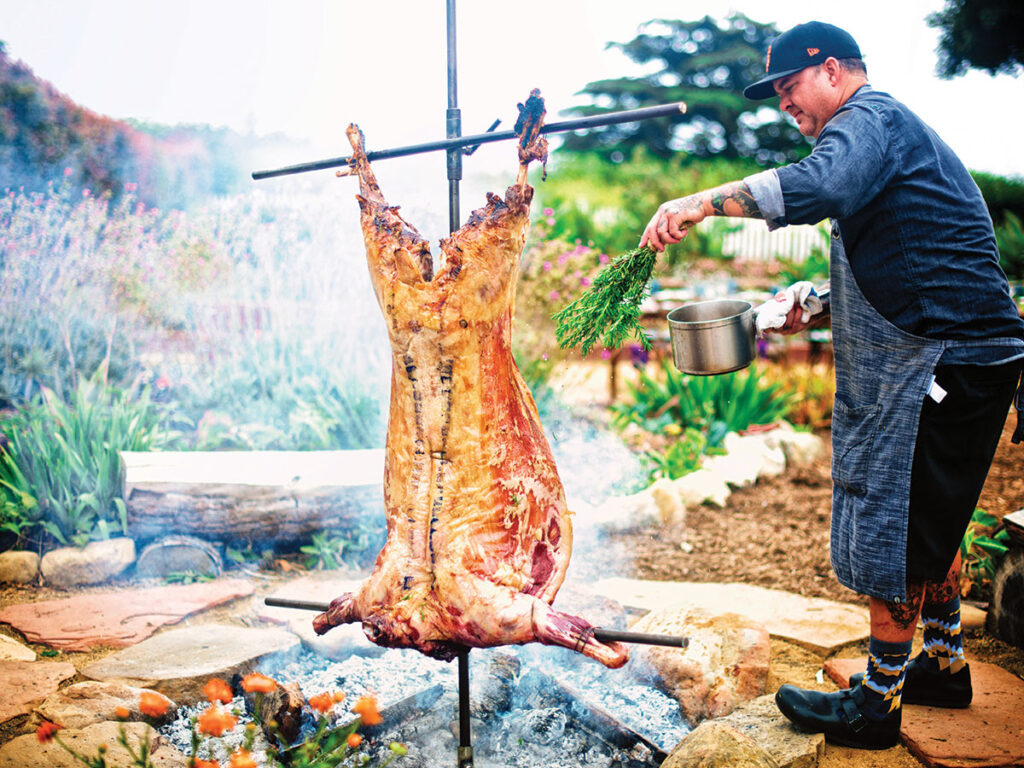
Growing And Grinding
In 2005, Jason opened his first solo restaurant, Square One in Santa Barbara, with his girlfriend. He designed the menu around California cuisine using fresh, local ingredients. “Nobody was doing this back then, just a handful of guys. But we didn’t market it for that — it was just how we cooked. We wanted the best-tasting ingredients, and the best were the local ones that were in season.” It did very well, and Jason racked up great reviews in the Los Angeles Times and various magazines. He also prepared the reward dinner challenge for an episode of Gordon Ramsay’s Hell’s Kitchen TV show at Square One. Five years later, while separating from his girlfriend, he sold her his stake in the restaurant.
This left a bitter taste in Jason’s mouth, but he moved on, eventually ending up back in Los Angeles working at and opening several restaurants, such as The Hudson and The Churchill, and building key relationships with industry folks who backed his future ventures.
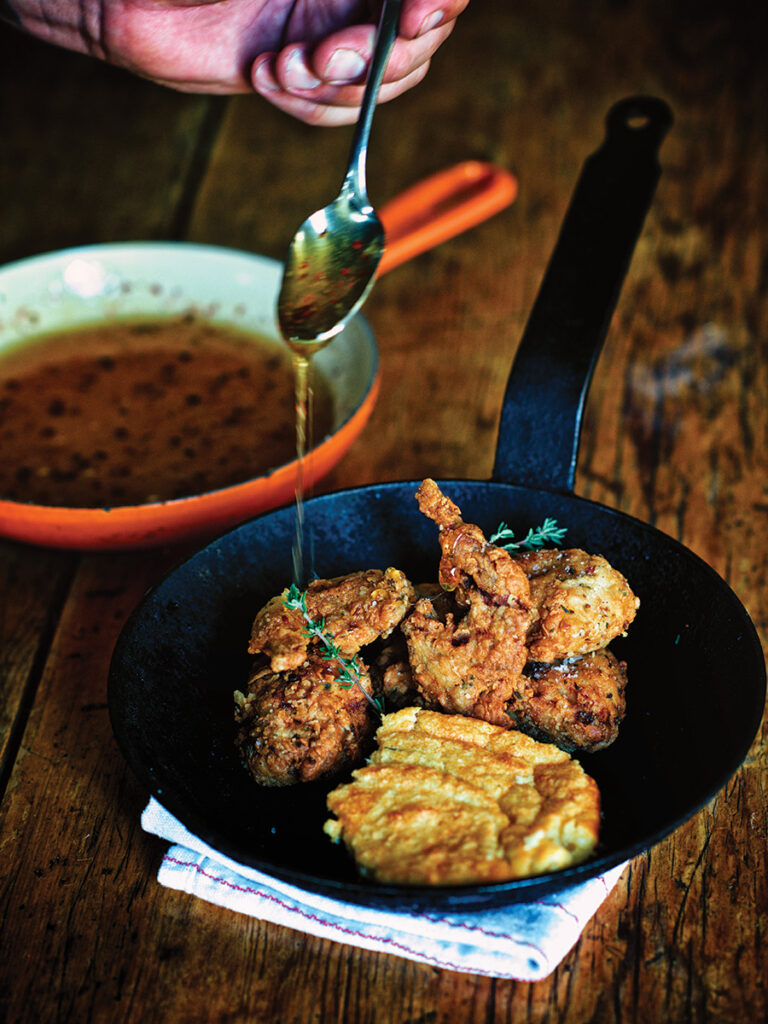
After launching another restaurant in Santa Barbara, Anchor Woodfire Kitchen, and running it for a few years, Jason sold it and moved on to the Bay Area in 2014. With big tech money flowing like water, he served as the executive chef for very popular, edgy, and high concept restaurants, in particular sharpening his skills with wood-fired ovens and locally sourced, market-driven ingredients. From TBD in San Francisco, Picco in Larkspur, Parlour in Oakland, to Contrada on Union Street, Jason notched up accolades from the San Francisco Chronicle, San Jose Mercury News, and other publications. He ran kitchens churning out hundreds of turns every night and bringing in tens of millions per year.
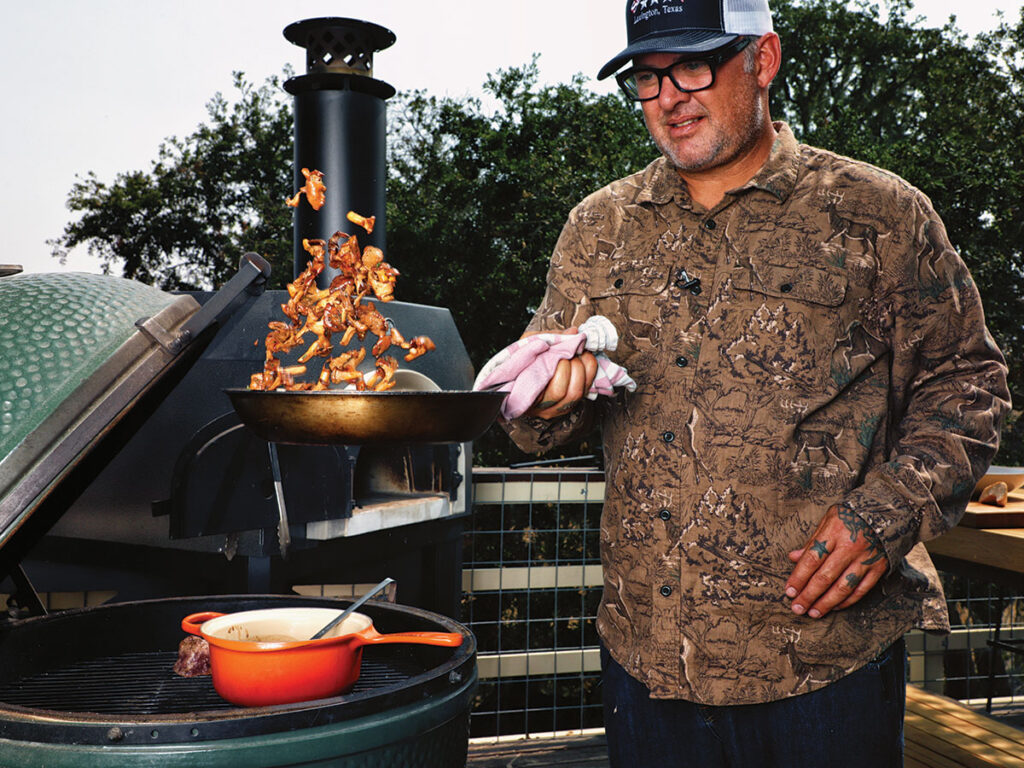
“Every day that you cook, you learn something. I’ll never finish honing my craft or sharpening my skills,” he said. Jason also learned that he enjoyed being the chef more than being the owner. “The toughest part of having your own restaurant is there’s no buffer between you and the business and accounting issues. It’s very tough and stressful.”
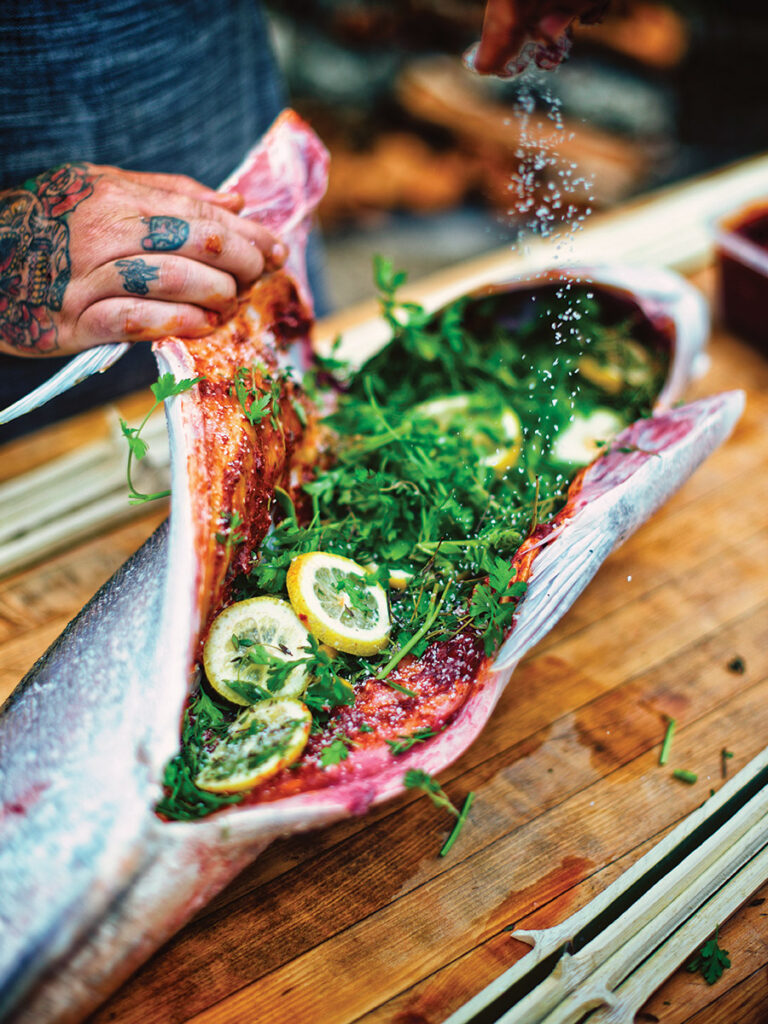
After Contrada closed, Jason took a break from the restaurant business. He explained, “I worked the line from 15 years old to three or four years ago, no breaks. I got a wicked case of arthritis and my left hand and knees are shot. I wasn’t burnt out though, but I always wanted to have a winery. It was always a dream, and it was my chance to invest in starting one.”
So after over 30 years in the kitchen, Jason bought a ranch in Santa Ynez, California, and embarked on the next phase in his life. He launched his winery, calling it Knife & Barrel, designed as a lifestyle brand for both food and wine. He just opened a tasting room in nearby Los Olivos, featuring wood-fired pizza, a 10-item menu, and his wines. And in the next year or so, he plans to open another restaurant in the area.
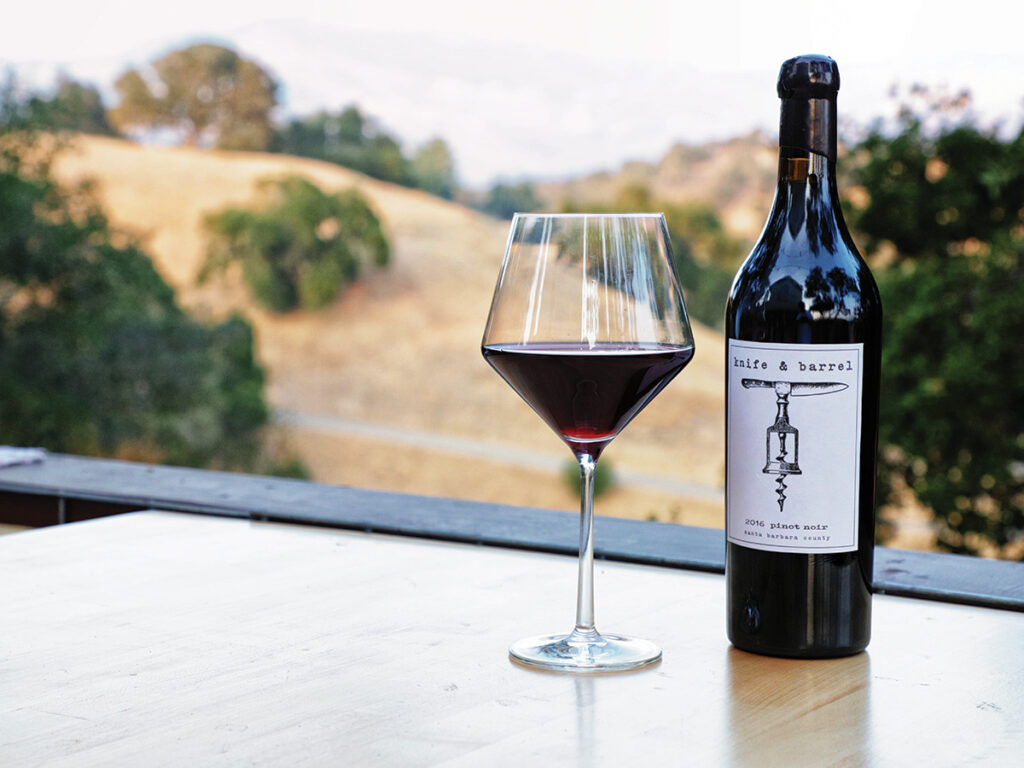
Back In The Field
Jason’s very first hunt was at the age of 5. He couldn’t even sign his hunting license himself, so his father signed it for him. Jason wielded a single-shot 410 shotgun to hunt upland birds and ducks with his dad. Occasionally, he’d go after wild boar with a Winchester 30-06 bolt-action rifle that he still hunts with today. Jason couldn’t get enough of hunting.
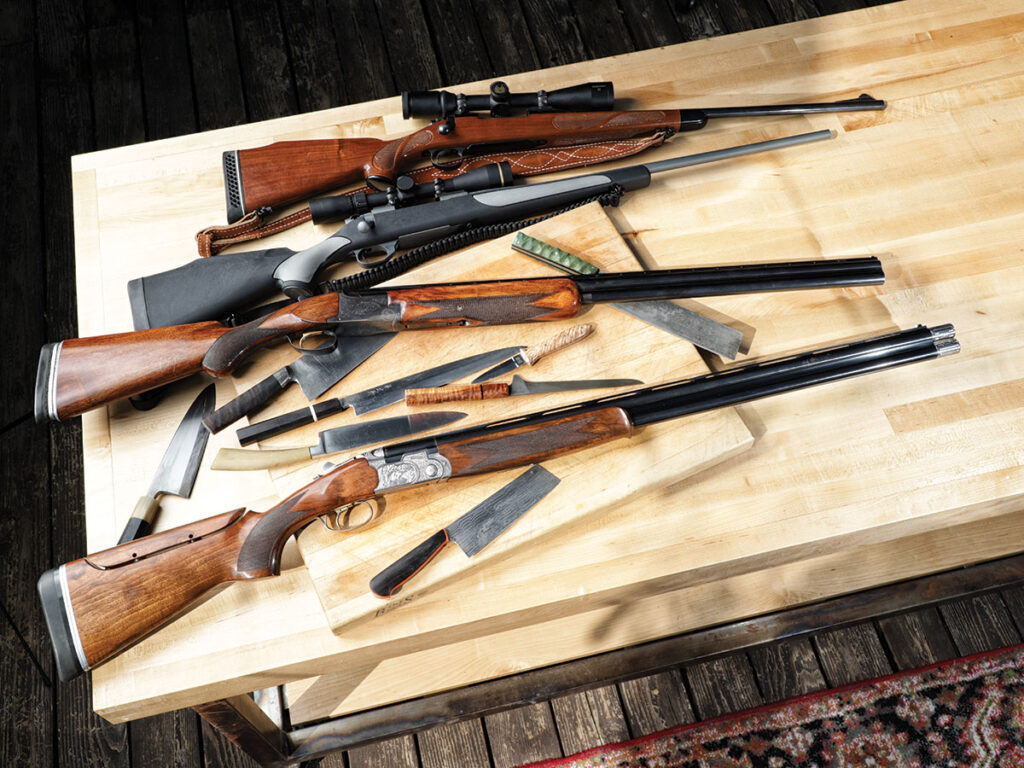
But once he started working full-time, Jason didn’t have much spare time, hunting only a couple times a year, mostly birds and a pig hunt here and there. It was easier to find time to forage, though. He reminisced, “When I was 19 or 20, I bought a book about mushrooms. I foraged for chanterelle and oyster mushrooms. Wild greens too. I have spots all the way out to Mendocino. I foraged more when I wasn’t able to hunt. One time during the rainy season, I picked a thousand pounds of chanterelles.”
After starting the winery and leaving the restaurant game, Jason wholeheartedly jumped back into hunting. “I live for hunting now. Once I hit my mid 40s, I started internalizing what really made me happy. Growing up in the cattle industry, then doing restaurants, then coming full circle back into the hunting lifestyle. This brings food full circle for me. Hunting keeps me going and enthusiastic about food. How do you bring proteins to the table in new ways?”
Jason re-prioritized his time and scheduled his work obligations to maximize his time in the field. “In 2019, I’d guess I was in the field for about three months out of the year. And I plan to keep that up.” He hunts a lot of birds — chukar, pheasant, quail, dove, duck, and turkey — as well as deer, boar, sheep, and elk. His usual hunting partners are a unique and lively bunch — Alex Clyne builds homes for the rich and famous, and Eric VonHerzen is an incredible musician who played harmonica for Social Distortion, when he isn’t running his championship-winning hunting dogs. Jason mostly hunts in California, but also in nearby states on occasion, and takes an annual trip to Argentina for ducks. Jason’s to-do list includes moose, bear, and buffalo in Africa.
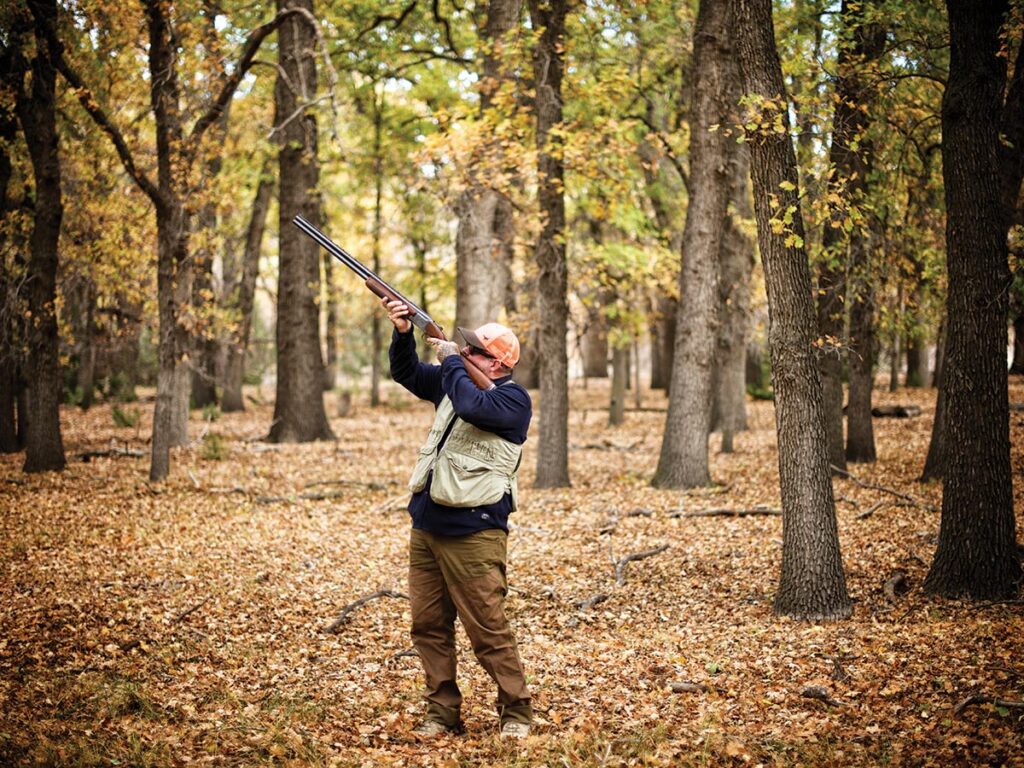
Jason spent the last decade mostly focused on Italian cuisine, but he noted he’s “turning the corner toward country. More to my grandma’s roots of Southern cooking with California ingredients.” His inspirations are rooted in the classics, with heroes such as Jacky Robert and Jacques Pépin. Jason explained, “My ideas come from random experiences, not necessarily from cooking. Since I’ve been hunting all the time now, almost all my inspiration comes from the field — wild game and how to accentuate the flavors of wild protein, how to showcase the amazing flavors of the things we hunt.”
Conservation And California Roots
Hunters get a bad rap in the mainstream media, but Jason stressed, “Hunters are stewards of the land. We look after habitats, clean up the land, and help game thrive.”
He bemoaned the prevailing perception of hunting in California: “Most of the people in California eat meat. If they eat meat, they should be prepared to harvest it themselves. Otherwise, just be a vegetarian. I think most chefs are cool with hunting, though. Who wouldn’t want to cook with great, local game?”
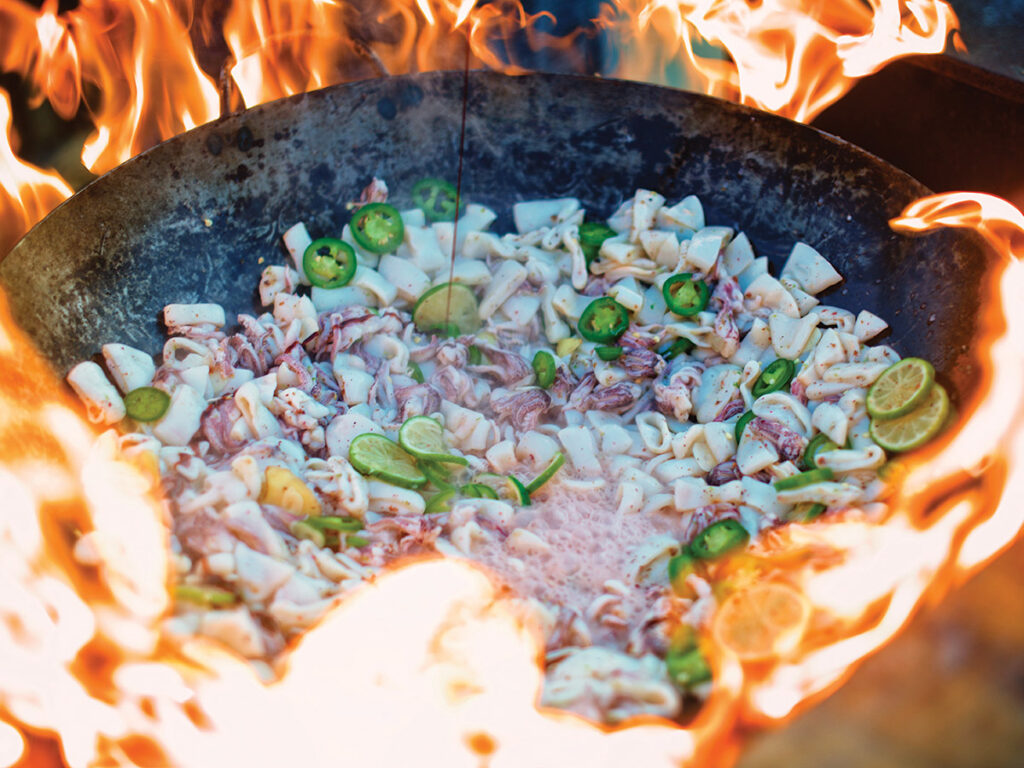
City folk in California, and those in the rest of free America who only hear about Hollywood and Silicon Valley, might not appreciate or be fully aware of the rich heritage of hunting and conservation in the Golden State. Jason’s passion for pairing wild game with fresh local ingredients in creative and delicious ways represents the roots of California cuisine.
Jason wants to leave a legacy and is working on a book about hunting, fishing, foraging, and cooking in California. “I’m a California guy. I’ll probably always stay here. But I want to leave something behind, to show what a real California chef is. Not just hunting and cooking, but also conservation. Eat the sh*t you shoot.”
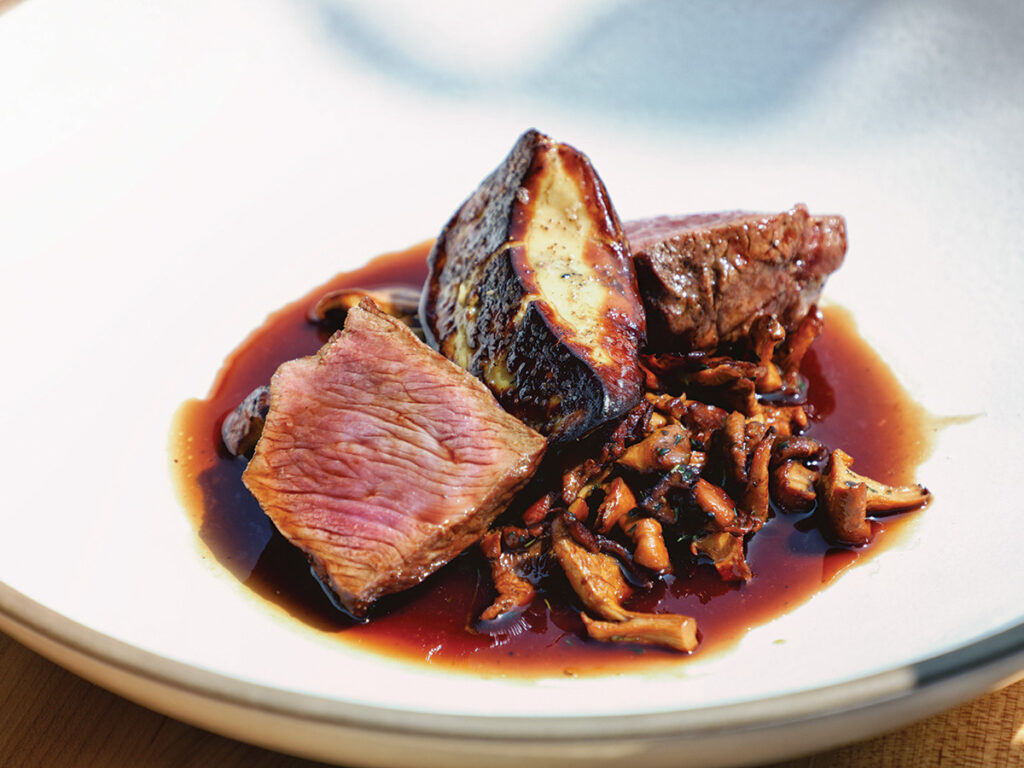
Source
- Jason Tuley: instagram.com/chefhunterforager
- Knife & Barrel: instagram.com/knifeandbarrelcalifornia
Editor’s Note: This article originally appeared in Carnivore Magazine Issue 5.
Why You Can Trust CARNIVORE
Since its launch, CarnivoreWeb.com has been a trusted authority on hunting, fishing and wild food, delivering expert insight for outdoorsmen who live the field-to-table lifestyle. More than a hunting and fishing site, CarnivoreWeb.com covers the full spectrum of the modern outdoors—from rifles, bows, and fishing gear to cooking, conservation and adventure.
Our contributors are drawn from across the hunting and angling world, including seasoned guides, lifelong hunters, competitive shooters and outdoor writers with decades of field experience. Every review, article and feature is built on firsthand testing, deep research, and an unwavering commitment to accuracy.
Commitment to Journalistic Principles
At CarnivoreWeb.com, upholding journalistic integrity is our top priority. We follow strict editorial standards to ensure all content is accurate, transparent, and unbiased. Our editors and writers operate independently, free from outside influence, advertisers or stakeholders. We adhere to established journalistic codes of ethics, holding ourselves accountable for the information we publish, correcting errors when they occur and disclosing any potential conflicts of interest.
This commitment ensures that our readers can trust CarnivoreWeb.com to provide reliable, honest coverage that helps them make informed decisions—whether selecting gear, honing outdoor skills or preparing wild game.
Find out more about our Editorial Standards and Evaluation Process


